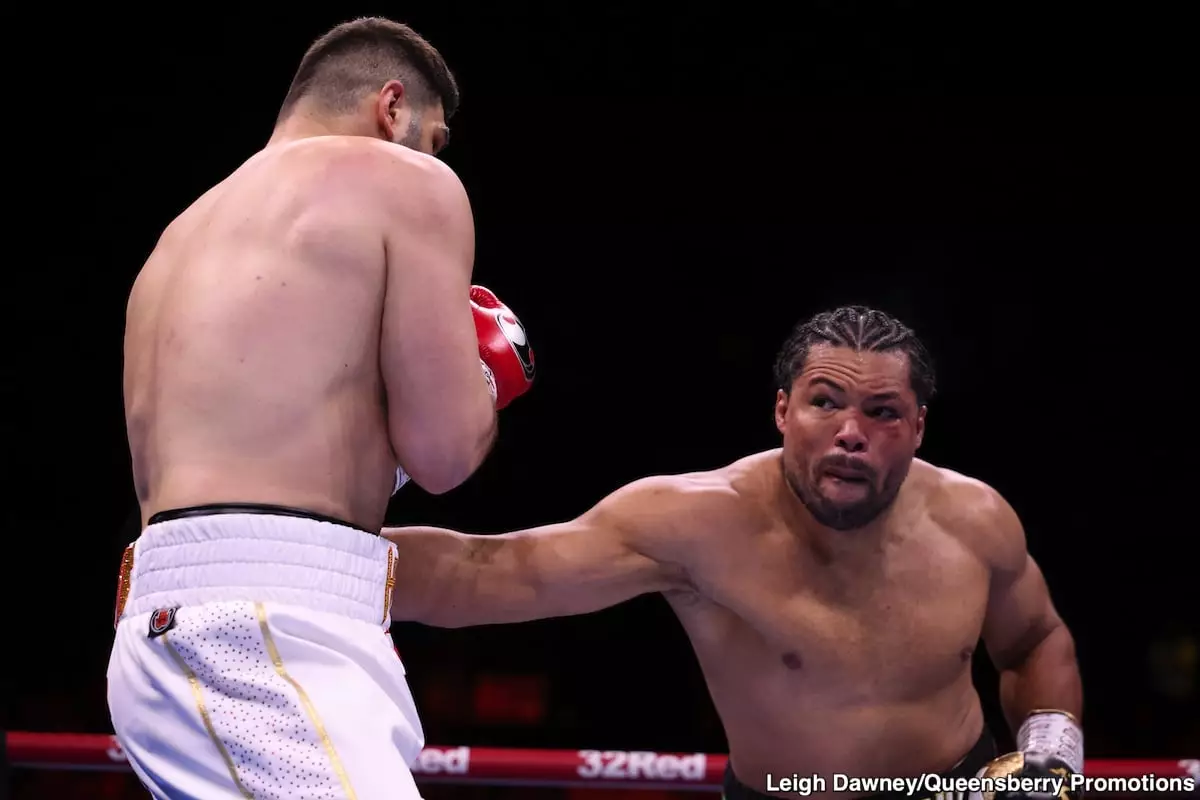The boxing world is buzzing with excitement as two esteemed heavyweights, Joy Joyce and Tony Yoka, contemplate reigniting their rivalry nearly a decade after their memorable encounter at the 2016 Olympic Games in Rio. During that fateful night, Yoka narrowly triumphed over Joyce, snagging the gold medal in a super heavyweight showdown that showcased both fighters’ prodigious talents. Fast forward to 2025, and both men find themselves at a critical juncture in their careers, making the prospect of a rematch not only thrilling but also significant in their professional trajectories.
The Road to Rematch: Who’s on Top?
Reports, primarily from the distinguished French outlet L’Équipe, suggest that Joyce and Yoka are in discussions for a face-off on the undercard of an epic heavyweight clash between Oleksandr Usyk and Daniel Dubois this July at Wembley Stadium, expected to draw an audience of around 80,000 fans. An event of this magnitude raises the stakes dramatically, as each fighter recognizes that another loss could signal the beginning of the end for their careers. Joyce, at 39 years old, holds a professional record of 16-4 (15 KOs) and has struggled recently, winning just one of his last five matches. His most recent bout ended in a decision defeat to Filip Hrgovic, leaving lingering questions about his future.
Conversely, Yoka, six years Joyce’s junior, seems to have gained momentum, boasting a record of 14-3 (11 KOs) after securing his third consecutive win against the previously unbeaten Arslan Yallyev. The change in training teams may have provided Yoka with the necessary tools to refine his skills and regain the form that made him a standout amateur. The messages from both fighters convey a sense of urgency; Joyce remains resolute, refusing to entertain calls for retirement, while Yoka appears rejuvenated, asserting that he has “very good years ahead of him.”
Psychological Warfare and Stakes Involved
The psychological aspect of this rematch adds another layer of intrigue. Joyce, famously known as “The Juggernaut,” is undeterred by the risks associated with his record, while Yoka carries the weight of expectations after boasting an unbeaten amateur career. Given that their first bout ended with Yoka emerging triumphant, Joyce enters this clash with a heavy desire for redemption. It’s a narrative that transcends mere statistics, delving deep into personal ambition and the will to prove oneself.
The sheer physicality of both fighters coupled with their respective journeys adds depth to this anticipated rematch. Yoka’s time spent “in a long tunnel,” as he aptly puts it, can resonate with fans who appreciate the emotional and mental challenges athletes face, while Joyce embodies the tenacity needed to persist in a demanding sport that often leaves no room for error.
With the possibility of a rematch looming, fans and boxing enthusiasts alike are rightly questioning what will unfold in the ring. Will Yoka solidify his dominance, or can Joyce reverse the outcome and seize his moment? The answer to this question lies on the horizon, promising a spectacle that encapsulates the essence of boxing—a blend of skill, strategy, and unyielding resolve.

